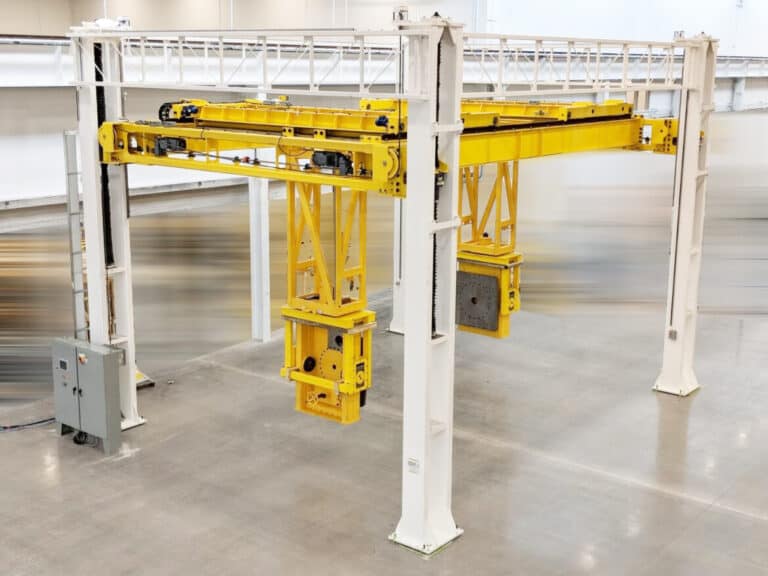Recognizing the Inclusions of moving and Freight Forwarding on the planet of Domestic and International Shipping
Guiding through the intricacies of moving and Freight forwarding can be tough. Both procedures involve distinctive treatments and demands that are crucial for effective transportation. Understanding the differences in logistics, documents, and threat monitoring is necessary for organizations and individuals alike. This knowledge can significantly influence the performance and safety and security of shipments. Numerous are not aware of the certain parts that affect the overall experience and results. What aspects should one consider to ensure a smooth changeover?
The Fundamentals of moving and Freight Forwarding
moving and Freight forwarding are essential elements of the global logistics industry. They help with the transfer of products and personal valuables across domestic and international boundaries. moving mostly involves the relocation of households or individuals, incorporating property and commercial needs. It normally includes packing, filling, transporting, and unboxing items at the location. In contrast, Freight forwarding is focused on the delivery of goods, typically wholesale, using various transportation settings, such as air, land.freight, or sea forwarders act as intermediaries, collaborating logistics to ensure prompt delivery while maneuvering with facility policies and customs procedures. Both processes call for careful planning, organization, and interaction to guarantee efficiency and lessen disturbances. Comprehending these fundamentals is important for any individual entailed in logistics, as they lay the groundwork for advanced aspects of shipping and transportation management.
Secret Components of Freight Forwarding Services
Freight forwarding services include a number of important elements that guarantee smooth transportation of items. Key obligations of Freight forwarders consist of handling logistics, coordinating shipments, and taking care of customs clearance. Additionally, understanding important delivery documents is crucial for compliance and effective movement of freight.
Freight Forwarder Responsibilities
A reliable Freight forwarder plays an essential duty in working with the transport of items, making certain that deliveries are dealt with effectively and in compliance with policies. Their obligations encompass various vital tasks, consisting of choosing ideal transportation courses, working out Freight rates, and managing logistics. They work as middlemans between shippers and providers, ensuring that freight is correctly packaged and classified for risk-free transit. Furthermore, Freight forwarders track shipments, supplying updates to customers regarding the standing and expected distribution times. They also examine and manage dangers connected with transport, advising insurance policy choices as required. By assisting in interaction and paperwork, Freight forwarders simplify the shipping process, decreasing possible delays and improving total supply chain effectiveness.
Delivering Documentation Basics

Comprehending Customs Clearance and Paperwork
Accurate paperwork is important in the customs clearance process, as it guarantees compliance with numerous guidelines. A summary of personalizeds policies highlights the intricacies encountered by shippers and Freight forwarders. Common clearance difficulties can considerably affect shipment timelines and expenses, making understanding this facet necessary for efficient logistics.
Relevance of Accurate Documentation
Steering via the intricacies of global shipping requires a keen understanding of customs clearance and the essential function of documentation. Exact documents is crucial for making sure that deliveries abide by policies and reach their locations right away. Appropriately prepared files, including costs of lading, commercial invoices, and packaging checklists, promote smooth interactions with customs authorities. Errors can bring about delivery hold-ups, penalties, or perhaps confiscation of items. In addition, detailed documents aids in monitoring shipments and dealing with disagreements. Subsequently, organizations took part in moving and Freight forwarding must focus on thorough documentation practices to navigate the detailed landscape of worldwide delivery properly. This persistance not only enhances procedures however additionally boosts client satisfaction by making sure prompt shipment.
Custom-mades Laws Review
Steering customizeds guidelines is an important element of global profession that directly influences the success of moving and Freight forwarding procedures. Efficient customizeds clearance calls for an understanding of different laws, including tolls, duties, and import/export limitations. Accurate documentation is necessary, as it assures compliance with lawful needs and helps with the reliable movement of items across borders. Key papers typically include industrial invoices, packaging checklists, and expenses of lading, which give in-depth info concerning the delivery. Furthermore, customs brokers play a critical function in steering complex laws, functioning as middlemans between shippers and personalizeds authorities. By keeping extensive knowledge of personalizeds processes, services can substantially lower hold-ups and minimize expenses connected with international delivery.
Usual Clearance Difficulties
Many challenges can develop during the custom-mades clearance procedure, often complicating the motion of items across boundaries. One considerable problem is inadequate paperwork, which can result in penalties and hold-ups. Exporters and importers should guarantee all called for paperwork, such as invoices, packaging lists, and certifications of beginning, is total and exact. In addition, inconsistencies in appraisal can trigger examination from custom-mades authorities, resulting in added tasks or inspections. Language obstacles might likewise posture difficulties, as miscommunication can lead to misunderstandings pertaining to laws. Modifications in personalizeds regulations can develop confusion, demanding continuous vigilance by carriers. Eventually, conquering these clearance challenges requires extensive prep work and a clear understanding of customizeds needs to facilitate smooth worldwide deals.
Product Packaging and Labeling Requirements
Although often neglected, packaging and labeling demands play a necessary role in the shipping process, guaranteeing that products are secured and easily identifiable throughout their journey. Appropriate packaging safeguards items from damage throughout transportation, while additionally promoting effective handling and storage. Using appropriate products, such as bubble cover, foam, or strong boxes, can protect against damage and loss.Labeling is just as important. Clear and exact labels communicate important information, including the location, managing directions, and components. Tags should abide with laws certain to worldwide and residential shipping, which might consist of hazardous materials recognition or personalizeds declarations.Moreover, standardized labeling practices streamline the tracking procedure and enhance general logistics efficiency. By moving labor services sticking to packaging and labeling demands, organizations reduce the threat of delays, damage, or misdelivery. Ultimately, these practices add greatly to the success of moving and Freight forwarding operations, making certain a seamless delivery experience for all parties entailed
Tracking Shipments: Relevance and Techniques
Reliable product packaging and labeling set the structure for effective shipment administration, yet tracking deliveries is equally important in the delivery procedure. Shipment tracking supplies real-time presence, which aids consumers and services monitor the progress of their products. This openness boosts customer fulfillment, given that customers can remain notified regarding distribution timelines and any type of potential delays.Several techniques facilitate efficient monitoring. Barcode scanning is a typical strategy, utilizing unique identifiers to keep an eye on bundles throughout their journey. Furthermore, general practitioner innovation allows exact place tracking, permitting prompt updates and enhanced logistics administration. Numerous shipping firms currently supply electronic platforms and mobile applications that offer users with very easy accessibility to tracking information.The relevance of delivery tracking can not be overstated; it minimizes the threat of shed or damaged goods, boosts functional effectiveness, and cultivates trust in between receivers and carriers. Incorporating effective monitoring techniques is important for effective residential and international delivery operations.
Insurance Options for Your Goods

Protecting insurance for items in transit is a vital factor to consider for people and businesses alike. Insurance coverage alternatives vary based upon the kind of delivery, worth of products, and certain threats included. Common kinds consist of copyright obligation, which covers loss or damage while en route, and full-value insurance policy, supplying comprehensive insurance coverage for the total value of the goods.Shippers might also think about aquatic insurance for international shipments, protecting against threats linked with sea transport. It is vital to assess the certain needs of the shipment and evaluate the terms and problems of any type of policy.Furthermore, recognizing exemptions and limitations is vital to stay clear of possible voids in insurance coverage. Carriers should engage with insurance professionals to explore tailored services that fit their special circumstances. Inevitably, buying the ideal insurance coverage can mitigate monetary dangers and supply peace of mind during the shipping process.
Selecting the Right moving and Freight Forwarding Service
When selecting a moving and Freight forwarding service, it is vital for individuals and companies to carefully evaluate their specific demands and concerns. Elements such as the volume of items, location, and timeline play a considerable role in this decision-making procedure. Looking into different carriers is a good idea; contrasting their services, pricing, and customer testimonials can reveal valuable insights.Additionally, it is essential to take right into account the experience and proficiency of the provider in handling details sorts of freight, particularly for international deliveries that might include custom-mades clearance. Transparency in prices, consisting of any hidden charges, must also be scrutinized.Furthermore, evaluating the degree of client support used is necessary, as prompt communication can mitigate problems throughout transit (shipping company). Finally, validating the schedule of insurance policy choices assures that goods are shielded throughout the shipping process. By taking these individuals, steps and organizations can make enlightened choices that line up with their logistics demands
Regularly Asked Inquiries
What Sorts Of Goods Can Be Shipped Globally?

Exactly How Do Shipping Expenses Range Various Service Providers?
Delivering costs differ substantially between service providers due to elements such as service speed, cargo type, distance, and extra services provided. Each provider's prices design shows these variables, affecting total delivery costs for clients.
Can I Ship Hazardous Materials or Perishables?
Shipping dangerous products and perishables goes through stringent guidelines. Providers usually call for details product packaging, labeling, and documents. Carriers need to ensure compliance with local and global legislations to avoid fines and assure risk-free transportation.
What Should I Do if My Shipment Is Delayed?
When confronted with a delivery hold-up, one must initially call the service provider for updates. Review any type of notifications obtained, evaluate alternative options, and keep all events informed concerning the circumstance to decrease interruptions.
Exist Weight Boundary for Delivery Containers?
Weight limitations for delivery containers vary depending on aspects like container size and shipping laws. Generally, common containers have a maximum gross weight of around 30,000 to 32,000 kilograms to ensure secure transportation and handling. In contrast, Freight forwarding is concentrated on the shipment of products, often in bulk, utilizing numerous transportation modes, such as sea, air, or land.freight forwarders act as middlemans, coordinating logistics to ensure prompt delivery while maneuvering with facility regulations and custom-mades treatments. Key obligations of Freight forwarders consist of taking care of logistics, coordinating shipments, and dealing with custom-mades clearance. A reputable Freight forwarder plays an essential role in coordinating the transportation of goods, guaranteeing that deliveries are handled efficiently and in compliance with regulations. Effective packaging and labeling set the foundation for successful shipment management, but tracking deliveries is just as essential in the delivery procedure. Several pop over to this site delivery business now offer digital platforms and mobile applications that supply individuals with very easy access to tracking information.The significance of shipment tracking can not be overstated; it reduces the risk of shed or harmed products, boosts functional effectiveness, and promotes trust in between recipients and shippers.